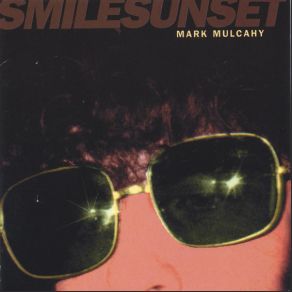smilesunset
Download links and information about smilesunset by Mark Mulcahy. This album was released in 2001 and it belongs to Rock, Pop genres. It contains 12 tracks with total duration of 51:25 minutes.

|
|
|---|---|
| Artist: | Mark Mulcahy |
| Release date: | 2001 |
| Genre: | Rock, Pop |
| Tracks: | 12 |
| Duration: | 51:25 |
| Buy it NOW at: | |
| Buy on iTunes $9.99 | |
| Buy on Amazon $8.99 | |
Tracks
[Edit]| No. | Title | Length |
|---|---|---|
| 1. | Micon the Icon | 2:00 |
| 2. | I Just Shot Myself In the Foot Again | 4:36 |
| 3. | Alamo In Alabama | 4:13 |
| 4. | The Quiet One | 3:54 |
| 5. | The Way She Really Is | 3:38 |
| 6. | Until I Say So | 3:16 |
| 7. | We're Not In Charleston Anymore | 3:44 |
| 8. | Wake Up Whispering | 2:58 |
| 9. | The Come On | 3:59 |
| 10. | Resolution #1 | 3:35 |
| 11. | I Hate to Needy Need You | 3:05 |
| 12. | A Cup of Tea and Your Insights | 12:27 |
Details
[Edit]The title of Mark Mulcahy's second solo outing would seem to indicate that the artist is ready to drink in that light just over the last hill. But as with all sunsets, there is also a lonely darkness waiting beyond the horizon. And, indeed, in the opening "Micon the Icon," the singer moans "I need a shoulder to cry on" as if he's not quite ready to live with himself just yet. Songs like the album's first single, "I Just Shot Myself in the Foot Again," and "I Hate to Needy Need You" also betray the kind of inward-looking misery that is the sure sign of an attached and still-aching heart. Luckily, misery has rarely been as alluring as Mulcahy makes it. He translates gloom into what amounts to a sleepy dream. It may be somewhat unnerving but you, nevertheless, don't want to wake from it. The East European melody of "Until I Say So," for instance, is terribly melancholy, bit it is so gorgeously sad that you want to live in the world Mulcahy has created, where "heaven's just an ocean away." And yet, Smilesunset does have a warmer, dusk-colored cast to it that finds the songwriter coming outside just long enough to take in the last remnants of sunlight. This is especially evident in a richer production. The almost naked sound of the debut was an ideal backdrop for the raw passion and discontentment of the sentiments, but here the emotion is more vibrant and less self-directed, and the production brings out those little playful details and deeper niches. Even on the hushed cabaret-tinged songs, the sound is drunken rather than dreary, a beautifully remembered hallucination rather than a pining outcry. And Mulcahy sounds positively zealous on songs like "We're Not in Charleston Anymore" and "The Quiet One," with its jazzy lilt. Smilesunset is an amazingly fertile record, every bit as wonderful as Fathering, perhaps with an even stronger magnetic attraction. Mulcahy seems to get better with each note.